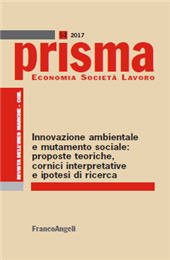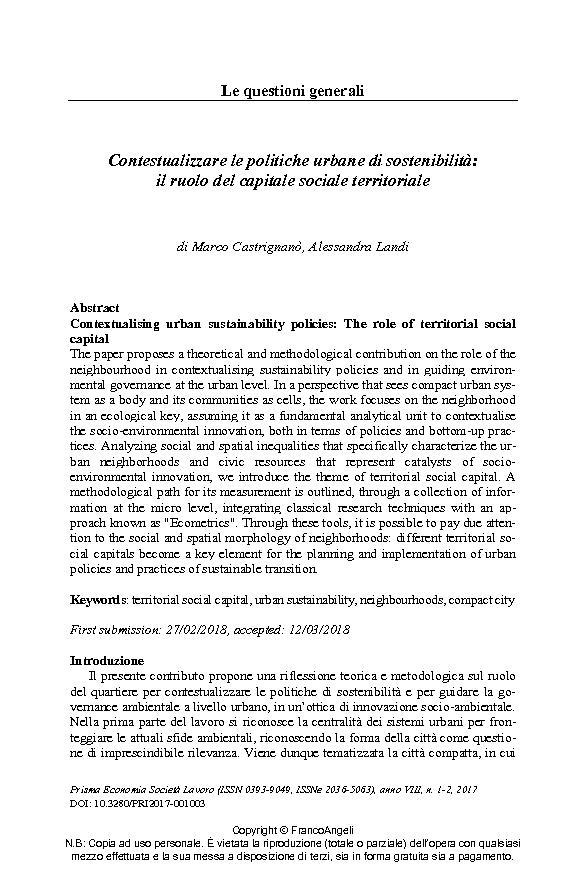Contestualizzare le politiche urbane di sostenibilità : il ruolo del capitale sociale territoriale
26-38 p.
The paper proposes a theoretical and methodological contribution on the role of the neighbourhood in contextualising sustainability policies and in guiding environmental governance at the urban level. In a perspective that sees compact urban system as a body and its communities as cells, the work focuses on the neighborhood in an ecological key, assuming it as a fundamental analytical unit to contextualise the socio-environmental innovation, both in terms of policies and bottom-up practices. Analyzing social and spatial inequalities that specifically characterize the urban neighborhoods and civic resources that represent catalysts of socio-environmental innovation, we introduce the theme of territorial social capital. A methodological path for its measurement is outlined, through a collection of information at the micro level, integrating classical research techniques with an approach known as "Ecometrics".
Through these tools, it is possible to pay due attention to the social and spatial morphology of neighborhoods: different territorial social capitals become a key element for the planning and implementation of urban policies and practices of sustainable transition. [Publishers' text].
Fait partie de
Prisma : economia, società, lavoro : 1/2, 2017-
Articles du même numéro (disponibles individuellement)
-
Informations
Code DOI : 10.3280/PRI2017-001003
ISSN: 2036-5063
DISCIPLINES
KEYWORDS
- Territorial social capital, urban sustainability, neighbourhoods, compact city



